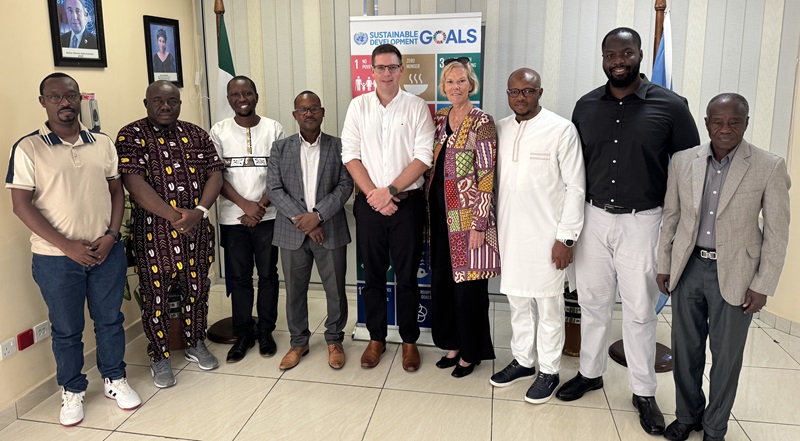The World Food Programme (WFP) and the Food and Agriculture Organization (FAO) recently signed an agreement with Mercy Ships Australia worth 1 million Australian Dollars (USD 650,000) in Freetown for the implementation of a Sustainable Agriculture and Livestock Project in Falaba District.
This initiative aims to mitigate resource-based conflicts between cattle herders and crop farmers by enhancing sustainable agricultural and livestock livelihoods, particularly among women, and by strengthening dialogue mediation platforms to facilitate peaceful conflict resolution.
Speaking at the signing ceremony, the Chief Operating Officer for Mercy Ships Australia, Andrew Bate said: “This project is in line with the mandate of Mercy Ships aimed at addressing the root causes of health issues through food security and nutrition.”
By developing 50 hectares of inland valley swamps for rice cultivation, introducing improved livestock breeds, and training over 500 women in agronomic practices, this project directly addresses the core drivers of food insecurity.
“This project marks the beginning of a comprehensive initiative aimed at improving the agriculture and livestock landscape of the Falaba district.”, said Saeed Bancie, FAO Country Representative.
In her statement, Yvonne Forsen, the WFP Country Director, stated that the intersection of Mercy Ships’ work in health and their focus on agriculture highlights the critical role that food and nutrition play in fostering healthier and more productive communities.
This initiative aligns with the Government of Sierra Leone’s Feed Salone strategy and WFP and FAO’s broader mission to achieve Zero Hunger. To support environmental sustainability and provide additional economic benefits, 10,000 economic trees will be planted. It will also develop solar-powered boreholes to provide reliable water sources for both agricultural and domestic use.
Through economic empowerment initiatives such as women-led cooperatives and targeted training programs, the project ensures that its benefits extend to those who need them most.
This project exemplifies the power of partnership. By working with WFP and FAO, the Government of Sierra Leone, and local communities, a framework will be built for scalable and replicable success.











